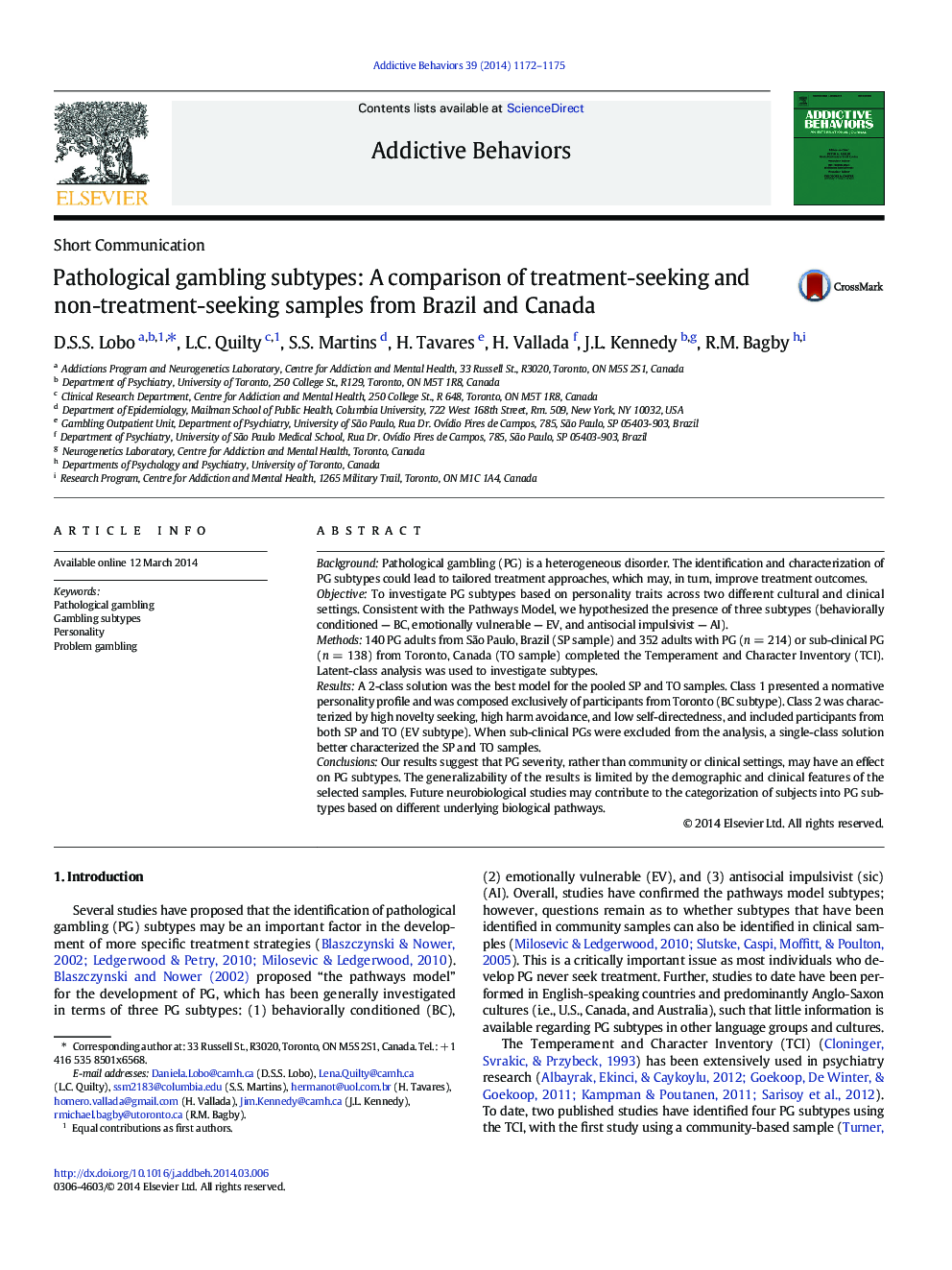| کد مقاله | کد نشریه | سال انتشار | مقاله انگلیسی | نسخه تمام متن |
|---|---|---|---|---|
| 898835 | 915344 | 2014 | 4 صفحه PDF | دانلود رایگان |
BackgroundPathological gambling (PG) is a heterogeneous disorder. The identification and characterization of PG subtypes could lead to tailored treatment approaches, which may, in turn, improve treatment outcomes.ObjectiveTo investigate PG subtypes based on personality traits across two different cultural and clinical settings. Consistent with the Pathways Model, we hypothesized the presence of three subtypes (behaviorally conditioned — BC, emotionally vulnerable — EV, and antisocial impulsivist — AI).Methods140 PG adults from São Paulo, Brazil (SP sample) and 352 adults with PG (n = 214) or sub-clinical PG (n = 138) from Toronto, Canada (TO sample) completed the Temperament and Character Inventory (TCI). Latent-class analysis was used to investigate subtypes.ResultsA 2-class solution was the best model for the pooled SP and TO samples. Class 1 presented a normative personality profile and was composed exclusively of participants from Toronto (BC subtype). Class 2 was characterized by high novelty seeking, high harm avoidance, and low self-directedness, and included participants from both SP and TO (EV subtype). When sub-clinical PGs were excluded from the analysis, a single-class solution better characterized the SP and TO samples.ConclusionsOur results suggest that PG severity, rather than community or clinical settings, may have an effect on PG subtypes. The generalizability of the results is limited by the demographic and clinical features of the selected samples. Future neurobiological studies may contribute to the categorization of subjects into PG subtypes based on different underlying biological pathways.
Journal: Addictive Behaviors - Volume 39, Issue 7, July 2014, Pages 1172–1175
